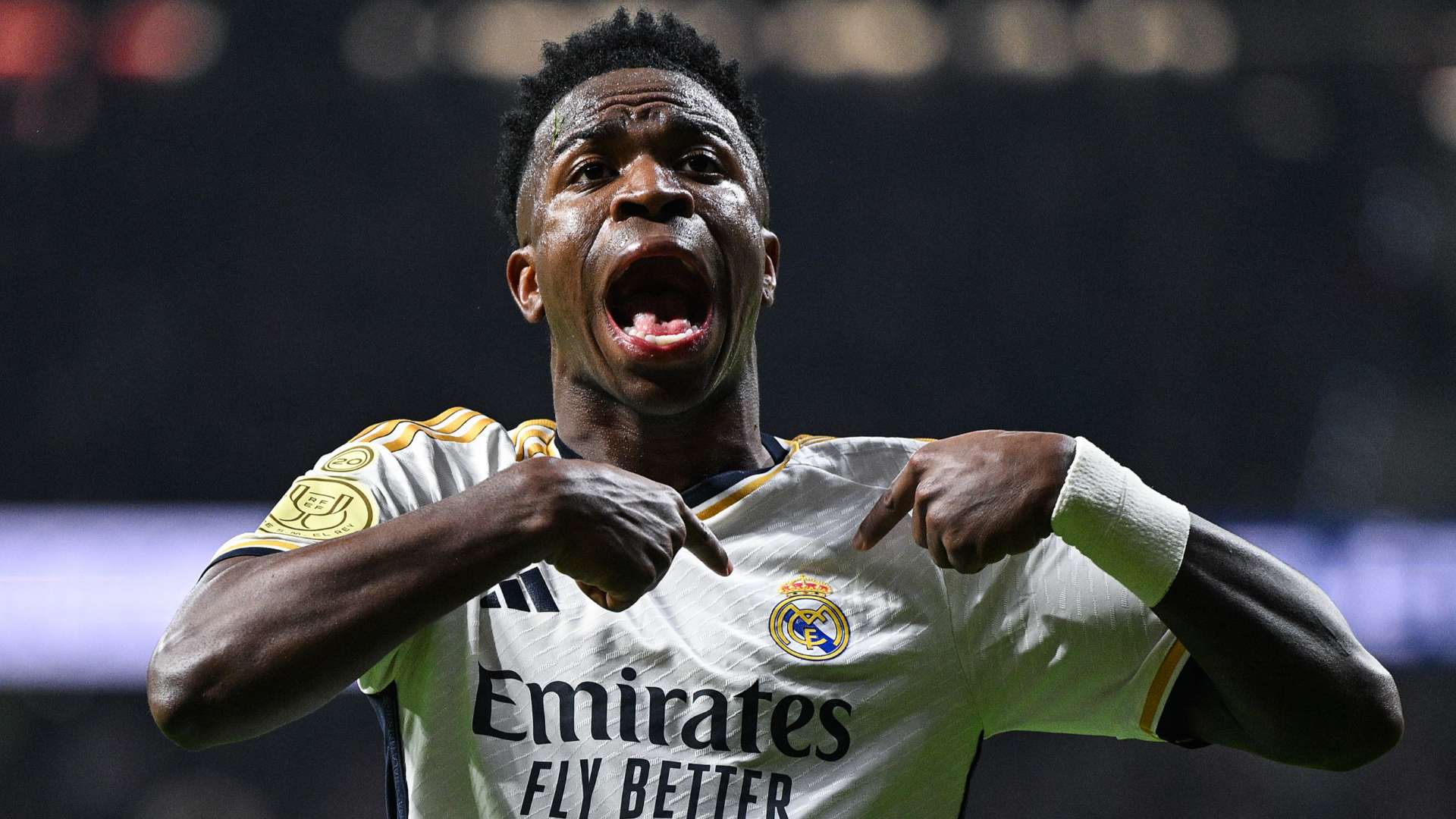Barcelona supporters were once again recorded directing hateful chants against Real Madrid star Vinicius Jr, calling for the Brazilian’s death before their Champions League clash with Bayern Munich. This latest incident has reignited concerns about persistent discrimination in football and raised serious questions about fan behavior in Spanish football.
The troubling scene unfolded outside the Estadi Olimpic Lluis Companys as Barcelona prepared to host Bayern Munich in their Champions League fixture. Footage shared by El Confidencial journalist Albert Ortega captured groups of supporters engaging in the reprehensible chanting, echoing similar incidents from the previous season when comparable chants were heard before a European match against Napoli.
This is not an isolated incident but rather part of a concerning pattern that has plagued Spanish football in recent seasons. Vinicius Jr, one of Real Madrid’s most dynamic players, has repeatedly been the target of discriminatory behavior from opposing fans, leading to widespread condemnation from football authorities, players, and anti-discrimination organizations worldwide.
The persistence of such behavior represents a serious failure in football’s mission to be truly inclusive,” stated a prominent anti-discrimination advocate who spoke on condition of anonymity. These incidents demand more than just condemnation – they require concrete action from clubs, leagues, and governing bodies.
The timing of these chants is particularly significant, coming just days before El Clásico, the highly anticipated match between Real Madrid and Barcelona scheduled for Saturday. Real Madrid currently sits at the top of the LaLiga table, with Barcelona in close pursuit, adding extra tension to an already charged atmosphere.
The 23-year-old Brazilian forward has consistently shown remarkable resilience in the face of such adversity. Fresh from a spectacular hat-trick performance against Borussia Dortmund in the Champions League, Vinicius has repeatedly demonstrated his ability to let his football do the talking. His recent form suggests he remains undeterred by the hostile treatment he continues to face.
Los aficionados del Barça cantan “Vinícius muérete, Vinícius muérete” antes del partido contra el Bayern de Múnich de la Champions League.
La temporada pasada ya le cantaron “Vinícius eres un mono”. pic.twitter.com/KcO5lLbZYm
— Albert Ortega (@AlbertOrtegaES1) October 23, 2024
Football authorities and anti-discrimination organizations are increasingly calling for stronger measures to combat such behavior. UEFA has previously stated its commitment to fighting discrimination in football, but many argue that current penalties and preventive measures are insufficient.
We need to see more decisive action from both clubs and governing bodies,” said a spokesperson for a leading football anti-discrimination network. This includes stronger sanctions, better education programs, and more proactive measures to identify and ban individuals involved in discriminatory behavior.
Barcelona, as one of football’s most prestigious institutions, faces mounting pressure to address this issue within its fanbase. The club has previously condemned discriminatory behavior, but critics argue that stronger measures are needed to prevent such incidents from recurring.
As attention turns to Saturday’s crucial match at the Santiago Bernabéu, there are concerns about potential further incidents. Security measures are expected to be heightened, with particular attention paid to preventing discriminatory behavior in and around the stadium.
This incident serves as a stark reminder of the ongoing challenges football faces in combating discrimination. While the sport has made significant strides in promoting inclusivity and respect, events like these highlight the work that still needs to be done.
Football authorities are increasingly recognizing that symbolic gestures and standard punishments may not be sufficient to address these deeply rooted issues. There are growing calls for more comprehensive approaches, including:
– Enhanced education programs for fans
– Stricter penalties for clubs whose supporters engage in discriminatory behavior
– Better technology and monitoring systems to identify offenders
– More support for affected players
As Vinicius Jr prepares to face Barcelona in El Clásico, the football world watches with concern and hope – concern over the potential for further incidents, but hope that the sport can finally take meaningful steps to address these recurring issues.
The Brazilian star’s resilience in the face of such treatment has earned him widespread admiration, but the responsibility for change lies not with the victims of discrimination, but with football’s authorities and the wider community of supporters who must stand united against hate in all its forms.



